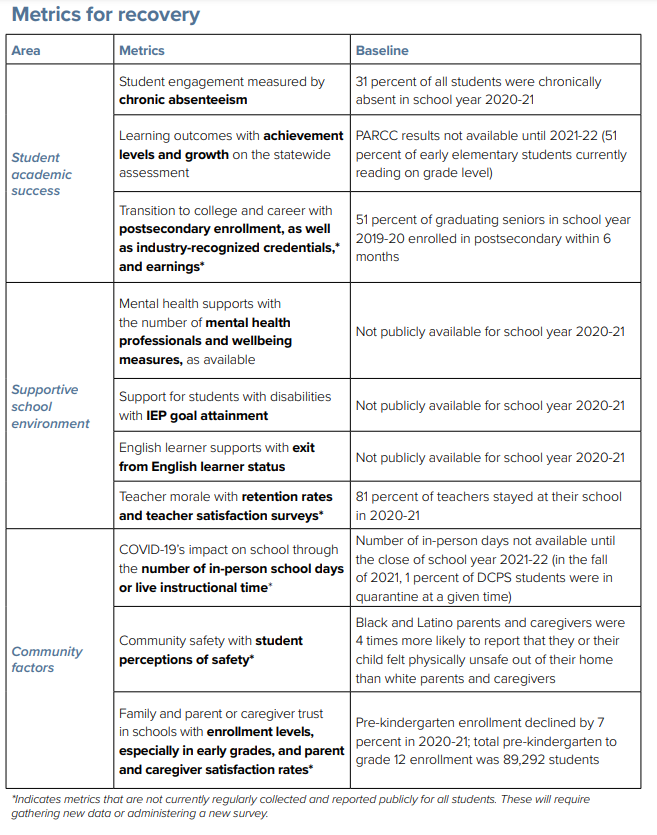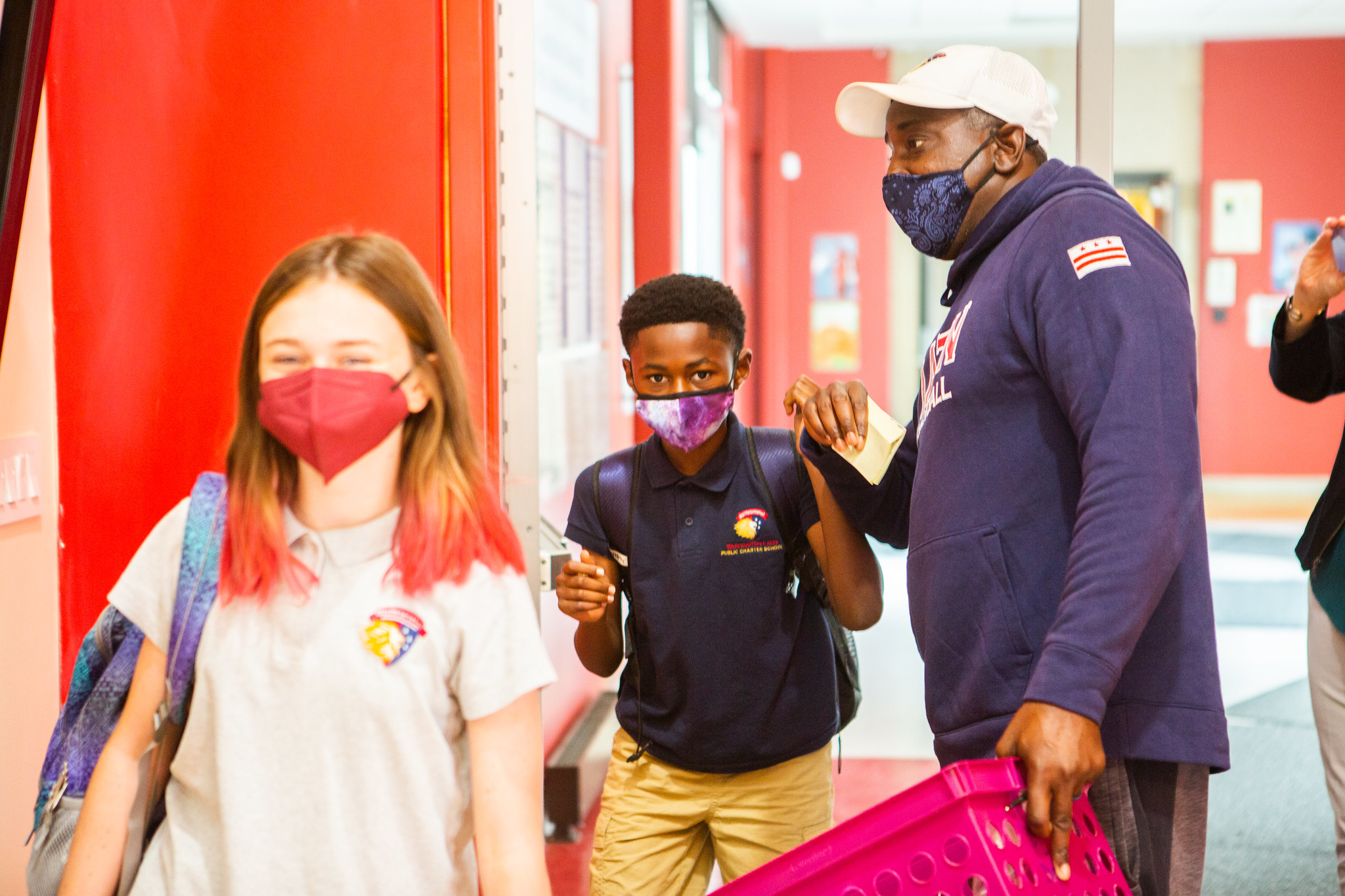

On Monday, March 28, 2022, Education Policy Initiative Director Chelsea Coffin testified before D.C. Council Committee of the Whole at its FY23 Budget Oversight Hearing for Education Agencies. You can read her testimony below or download a copy.
Good morning, Chairman Mendelson and members of the Committee of the Whole. My name is Chelsea Coffin and I am the Director of the Education Policy Initiative at the D.C. Policy Center, an independent think tank focused on advancing policies for a growing and vibrant economy in D.C. I will focus my testimony today on the critical need to streamline and track goals for recovery in education at the system level in FY23 and beyond based on our findings in the recent State of D.C. Schools report.1
The FY23 budget includes substantial investments in academics, with a historic increase of 5.87 percent to the UPSFF foundation level and $14 million for high impact tutoring, among others. These resources intended to boost learning outcomes are essential for success in school year 2022-23, but there is a need to focus more on the expected results. OSSE’s Annual Performance Plan has FY22 targets of 43.2 percent of students being college and career ready in English Language Arts (ELA) and 40.1 percent in Math, which indicate an increase of 6.2 percentage points in ELA and 9.1 percentage points in Math from 2018-19. These increases assume that learning has continued apace during the pandemic even though findings suggest that these years have been incredibly challenging for students and that achievement levels are lower than they were pre-pandemic. Instead D.C. needs a framework for improving learning outcomes that considers the baseline and targets improvements by student group, especially for students designated as at-risk.
The FY23 budget continues the same levels of funding for students with disabilities and English learners, including a supplemental weight for English learners in high school added last year. During the pandemic, these groups were harder to identify – evidenced by a drop of 2 percentage points for students with disabilities and English learners in pre-kindergarten last year. Students with disabilities and English learners also often experienced more challenges with virtual education and show signs of more unfinished learning. OSSE has a goal of IEP reviews that comply with secondary transition requirements and IDEA due process hearings, and no goals for English learners. To think more deeply about recovery, there should be goals that consider outcomes in addition to process for both groups, such as goal attainment for students with IEPs and exit for English learners.
The FY23 budget also includes significant funding for high schoolers and connections to college and career, with $6.5 million for the Marion Barry Summer Youth Employment Program (MBSYEP), $7.9 million for reimagining work-based learning, $1.5 million for the College Rising project, $12.3 million for DC Futures Tuition Assistance, and more. This funding highlights another area where targets and metrics should be more meaningful beyond high school graduation rates. OSSE’s Annual Performance Plan for FY22 aims for 36 percent of students who enroll in postsecondary completing within 6 years, but in FY21, only 22 percent of students completed, making it another target based on pre-pandemic trends. There are no metrics available on employment or earnings outcomes for D.C.’s high school alumni, or other credentials they accrue aside from college degrees. Investing in data systems to connect the dots between high school and the workforce for alumni is crucial to find out what is working in these programs,2 and deserves to be a focus point in education recovery discussions especially as high school students have the fewest years before they transition to college and career.
Amidst large investments in education and the acute need to regain what school communities have lost during the pandemic, D.C. needs to track recovery that is intended in this budget with thoughtful targets. The D.C. Policy Center outlines metrics in the areas of student academic success, supportive school environment, and community factors to consider tracking by student group (see Appendix). Some are published already in separate spots, others need to made publicly available, and others require new data collection efforts (for example, a citywide survey of student wellbeing or perceptions of safety). These metrics could be displayed alongside other COVID-19 data, in a central place with other government data on education, or requested in future oversight hearings in an effort to find out what is working and where additional resources may be needed.
Thank you for your time. I am happy to answer any questions you may have.
Appendix


Endnotes
- D.C. Policy Center. 2022. State of D.C. Schools, 2020-21. D.C. Policy Center. Retrieved from https://www.dcpolicycenter.org/wp-content/uploads/2022/03/2020-21-State-of-DC-Schools-pages-format.pdf
- Coffin. C. and Rubin, J. 2021. Measuring early career outcomes in D.C. D.C. Policy Center. Retrieved from https://www.dcpolicycenter.org/publications/measuring-outcomes/
